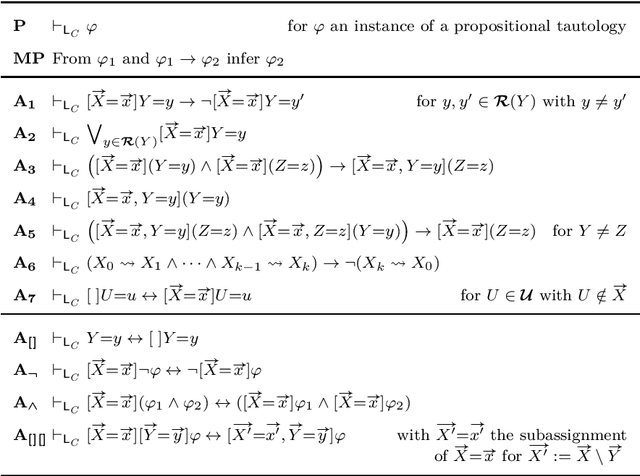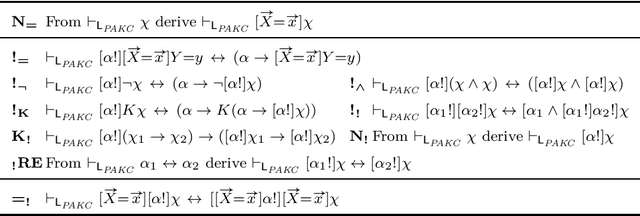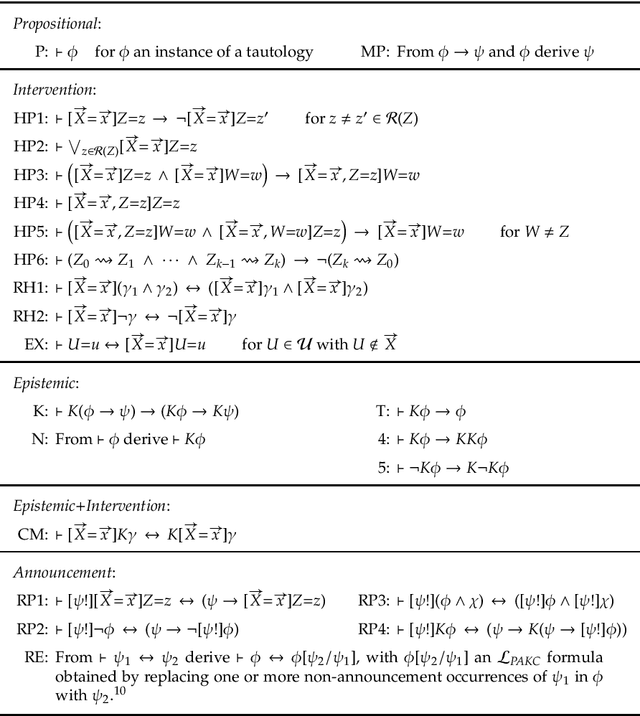Fernando R. Velázquez-Quesada
ILLC
Observing Interventions: A logic for thinking about experiments
Dec 01, 2021


Abstract:This paper makes a first step towards a logic of learning from experiments. For this, we investigate formal frameworks for modeling the interaction of causal and (qualitative) epistemic reasoning. Crucial for our approach is the idea that the notion of an intervention can be used as a formal expression of a (real or hypothetical) experiment. In a first step we extend the well-known causal models with a simple Hintikka-style representation of the epistemic state of an agent. In the resulting setting, one can talk not only about the knowledge of an agent about the values of variables and how interventions affect them, but also about knowledge update. The resulting logic can model reasoning about thought experiments. However, it is unable to account for learning from experiments, which is clearly brought out by the fact that it validates the no learning principle for interventions. Therefore, in a second step, we implement a more complex notion of knowledge that allows an agent to observe (measure) certain variables when an experiment is carried out. This extended system does allow for learning from experiments. For all the proposed logical systems, we provide a sound and complete axiomatization.
Thinking About Causation: A Causal Language with Epistemic Operators
Oct 30, 2020
Abstract:This paper proposes a formal framework for modeling the interaction of causal and (qualitative) epistemic reasoning. To this purpose, we extend the notion of a causal model with a representation of the epistemic state of an agent. On the side of the object language, we add operators to express knowledge and the act of observing new information. We provide a sound and complete axiomatization of the logic, and discuss the relation of this framework to causal team semantics.
Argument-based Belief in Topological Structures
Jul 27, 2017

Abstract:This paper combines two studies: a topological semantics for epistemic notions and abstract argumentation theory. In our combined setting, we use a topological semantics to represent the structure of an agent's collection of evidence, and we use argumentation theory to single out the relevant sets of evidence through which a notion of beliefs grounded on arguments is defined. We discuss the formal properties of this newly defined notion, providing also a formal language with a matching modality together with a sound and complete axiom system for it. Despite the fact that our agent can combine her evidence in a 'rational' way (captured via the topological structure), argument-based beliefs are not closed under conjunction. This illustrates the difference between an agent's reasoning abilities (i.e. the way she is able to combine her available evidence) and the closure properties of her beliefs. We use this point to argue for why the failure of closure under conjunction of belief should not bear the burden of the failure of rationality.
* In Proceedings TARK 2017, arXiv:1707.08250
 Add to Chrome
Add to Chrome Add to Firefox
Add to Firefox Add to Edge
Add to Edge